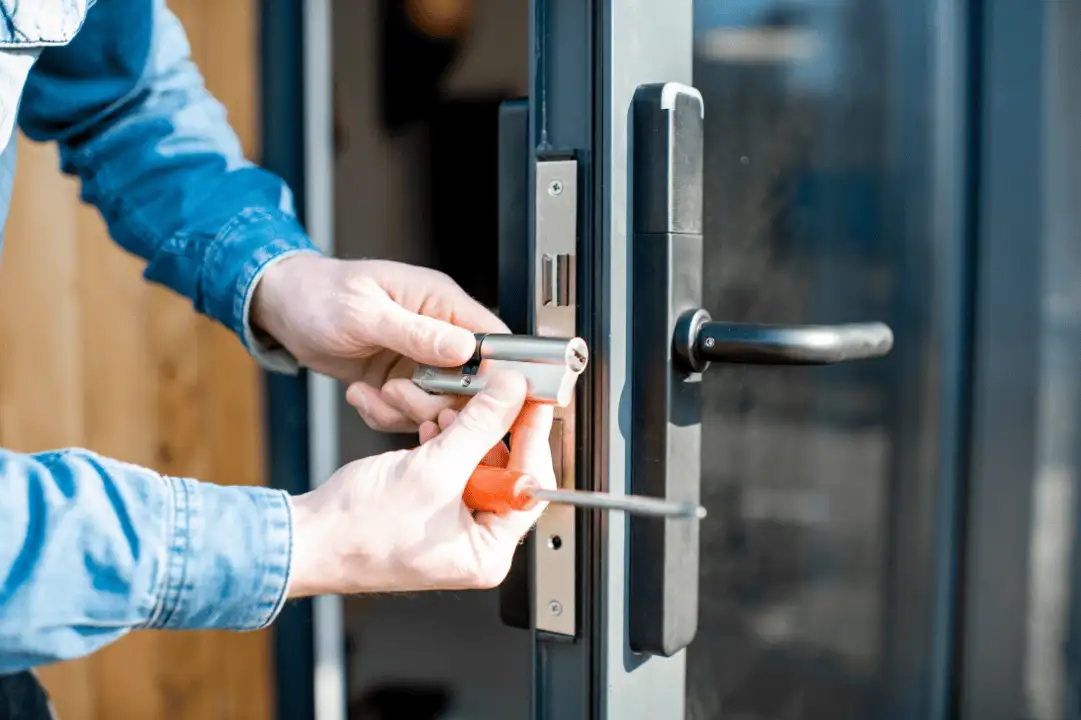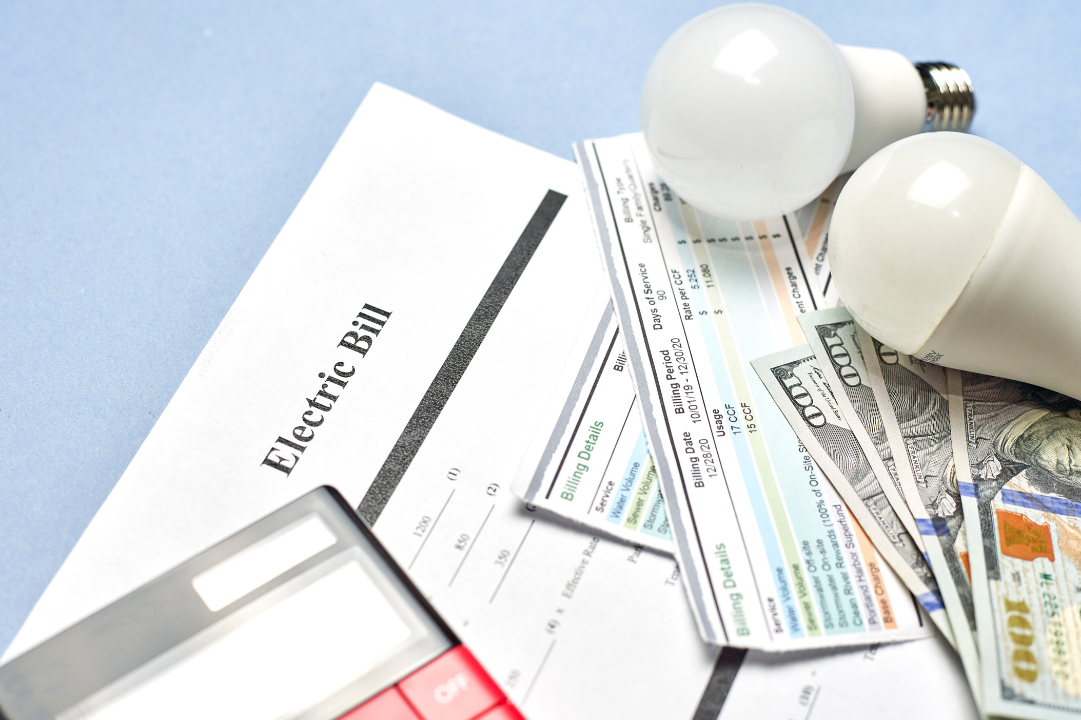Last Updated on October 23, 2025
Table of contents
It’s very important that you know what to do after buying a tax deed property, especially after getting a tax deed property. This topic is so basic, yet if we fail to do it, the property might be at stake.
Here is what to do after you win a tax deed auction:

Protect the Property From Day One
The first thing to do after winning the auction is to secure your new asset. The seller or former occupant might still have old keys or know the entry codes. Buyers who secure the property “should be your first priority,” and that changing the locks helps prevent anyone from entering without your permission. In addition to replacing door locks, you may want to change padlocks on outbuildings and reset any digital security systems.
Basic Steps to Secure Your Investment
- Change all locks and codes – you do not know who has copies of the old keys. Replace or re‑key door locks, garage door remotes, gate codes and any keyless entry systems.
- Inspect doors and windows – look for broken latches or weak points. Reinforce entry points and install temporary boarding if necessary.
- Notify neighbours – introduce yourself to nearby residents and let them know you own the property. They can help keep an eye out for suspicious activity and may know the neighbourhood’s history.
- Consider insurance – talk with a local insurance agent about hazard and liability coverage. Without insurance, a fire, theft or injury could become an expensive setback.
Find Out if Anyone is Living There
Before you start repairs or marketing after buying a tax deed property, check whether the property is vacant. The original owner or tenants might still be inside. If the house is vacant, you can proceed with changing the locks, completing rehabs and eventually selling.
If people still live there, you will need to follow state and local laws. The new owner cannot simply force someone out; you should negotiate politely and possibly use an attorney to begin a formal eviction process.
Tips for Dealing with Occupants After Buying a Tax Deed
- Approach with empathy – many previous owners lost their homes because they could not afford the taxes. Some may be grieving over leaving a family home. Treating them with respect can lead to cooperation.
- Offer relocation support – you might propose cash for keys or extra time to move out. This goodwill can reduce tension and legal costs.
- Review local law – eviction procedures vary by state and sometimes by county. In North Carolina, for example, the tax‑foreclosure process may include a short redemption period. Consult a real estate attorney to ensure you respect all occupant rights.

Check Utilities and Outstanding Bills
Water left running or utilities shut off can damage the property. Previous owners sometimes forget to turn off the water, which can cause a flood. Turn off or winterize the water line first, then contact utility providers to transfer service into your name.
After buying a tax deed property, ask if there are unpaid bills; unpaid utilities can sometimes attach as liens or create problems when you transfer title. If there are overdue amounts, try to negotiate with the prior owner or pay them to prevent service interruptions.
Consider Investors and Plan Your Exit
Not everyone who buys a tax deed wants to fix up and keep the house. You might want to sell quickly. Finding investors who buy quit claim deeds or who will purchase the house “as is”.
Selling to another investor can free you from renovation work and give you a faster return on investment. When marketing to investors, be transparent about the property’s condition and highlight the discount compared with the market value.
Secure the Title and Handle Legal Issues
When you buy a tax deed at auction, you receive ownership, but the title is often “clouded” because of prior liens, mortgages or procedural errors. After purchase, “clearing the property’s title” is necessary before selling.
Two common ways to clear a tax deed title are a quiet title action (a lawsuit asking a judge to confirm your ownership) and a title certification ordered through a consultant or title insurance agent. Without a clear title, you may have trouble selling or financing the property.
Title Protection Checklist After Buying a Tax Deed
- Order a title search – search public records for other liens or claims. This helps you identify outstanding mortgages, HOA dues or city liens that may survive the tax deed sale.
- File a quiet title action – hire an attorney to file a lawsuit that resolves any competing claims and gives you a marketable title. This process can take several months.
- Purchase title insurance – Buying title insurance to protect against hidden defects. Title insurance also reassures buyers and lenders when you resell or refinance.
- Consult professionals – real estate attorneys, escrow agents and experienced investors can guide you through local requirements and help avoid costly mistakes.

Clean, Stage and Market the Property
Presentation matters when you want to attract buyers or renters after buying a tax deed. Making the property presentable may include decluttering, staging rooms, trimming overgrown plants and removing debris. Once the house looks welcoming, take high‑quality photographs; good images help a property sell faster. Finally, list the property online. The internet provides a large market and is the fastest way to find potential buyers.
Action Steps for Showcasing Your Tax Deed Property
- Declutter and clean
Remove personal items, old furniture and trash. A tidy interior lets buyers imagine themselves in the space.
- Perform minor repairs
Fix leaks, patch holes, and replace broken fixtures. Small fixes can greatly increase perceived value.
- Stage key rooms
Add neutral furniture and décor to help buyers visualize how the space can be used.
- Enhance curb appeal
Mow the lawn, trim hedges and plant flowers. First impressions often happen at the curb.
- Take professional photos
Capture multiple angles and highlight special features. Use natural light when possible.
- List on popular platforms
Advertise on real estate websites, social media and local investment groups.
Frequently Asked Questions About Tax Deed Properties
A tax deed property is a home or parcel sold by a county because the previous owner failed to pay property taxes. The county issues a tax deed to the highest bidder at auction. Unlike a tax lien certificate (which is merely a lien), a tax deed gives you ownership of the property.
Changing the locks prevents unauthorized entry. Previous owners, tenants or their friends may still have keys. Replacing locks secures your investment and avoids potential liability if someone enters and is injured.
First, determine if the property is vacant. If it is occupied, approach with respect and negotiate terms for leaving. Each state has its own eviction rules. Consulting an attorney helps ensure you follow legal procedures and minimize conflict.
A quiet title action is a lawsuit that asks a court to “quiet” any competing claims to your property. It confirms that you have clear ownership. This is often necessary after a tax deed sale because some liens or procedural errors could cloud the title. Clearing the title makes it easier to resell or refinance.
If you do not wish to renovate, look for investors willing to buy quit-claim deeds or purchase the property in its current condition. Networking with local real estate investment groups, realtors and wholesalers in your city can help you find buyers faster.
Final Thoughts
Buying a tax deed property can be a profitable way to acquire real estate at a steep discount. However, success requires more than placing the winning bid. After the auction, you must secure the property, verify occupancy, handle utilities and bills, clear the title, make the home marketable and follow local laws.
These are the most basic yet important things to know and do after buying a tax deed property.
If you have any questions about how to get ready in tax lien and deed investing, make sure to shoot us a message.
Talk to you soon,
Dustin
PS: For more great videos uploaded weekly on our YouTube channel, check us out online right here and subscribe for first access to great content!





